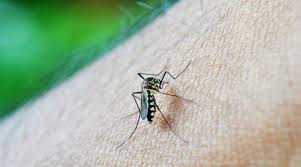Over 100 cases of chikungunya were verified in Pune in September, and there have also been reports of vertical transmission (VT), in which the virus is transferred from mother to child. Usually spread by infected mosquitoes, chikungunya can also spread through physiological fluids like breast milk or the placenta in certain situations. Despite being uncommon, VT cases have been reported in the city as a result of a rise in chikungunya cases during the monsoon season.
Experts such as epidemiologist Dr. Amitav Banerjee explain that more complex and unusual cases, such as VT, are probably going to arise from this spike. The head of the Pune Pediatric Intensive Care Society, Dr. Sachin Shah, stated that during the previous month, he had treated five neonates for chikungunya, two of whom had VT cases. Within days of delivery, babies began to exhibit symptoms, including fever, irritability, unwillingness to nurse, and in one instance, jaundice. There have also been reports of uncommon side effects, including as hemophagocytosis and low platelet and white blood cell counts.
Neonatalist Dr. Pradeep Suryawanshi reported that in the previous thirty days, he had treated four infants with chikungunya who had symptoms such as fever, rash, and low platelets. Disseminated intravascular coagulation (DIC), a dangerous illness that results in irregular blood clotting, struck one baby, while neonatal encephalitis, a brain infection that causes convulsions, struck another. Both cases were successfully treated, albeit one patient needed 17 days of intensive care.
Senior pediatrician Dr. Tushar Parikh disclosed that during the previous month, seven instances of chikungunya VT had been verified at his institution by RT-PCR testing. Within ten days of delivery, the symptoms in these patients were feeding intolerance, lethargy, and respiratory issues. Six of the babies made a full recovery, while one died not long after being brought to the hospital.
In situations of VT, where the virus can cause major problems, doctors stressed the value of early detection and care. They advise doing RT-PCR testing as soon as VT is detected and continuing close observation once the child recovers to make sure the virus does not impair their development.
SOURCE :
TIMES OF INDIA








